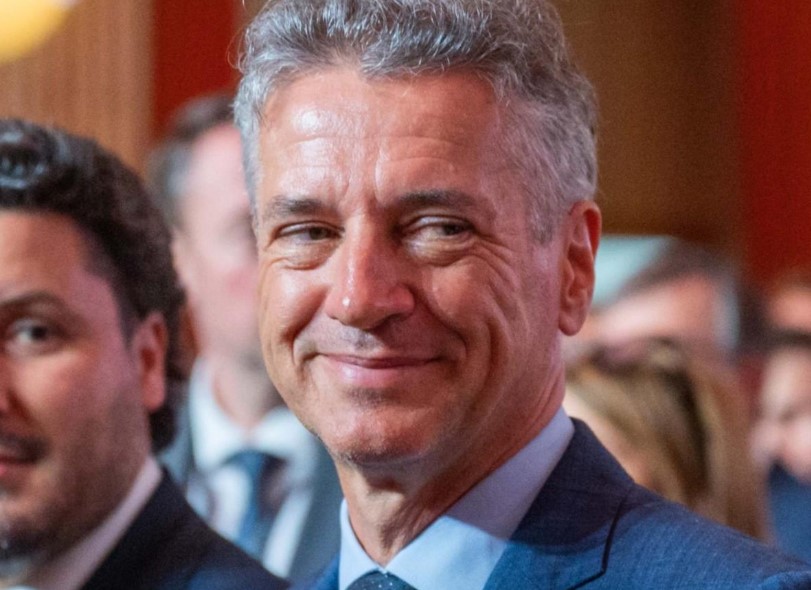“I also do not understand the other ministers not resisting these savings due to flood rehabilitation, when on the other hand, the government has 185 million to spend on purely personal, frivolous matters,” TV presenter Aljuš Pertinač recently pointed out. “In any case, the justification of the 185 million earmarked for the purchase of small shareholders’ stakes in the electricity distribution would require a detailed explanation from the minister in charge,” added TV commentator Marko Pavlišič.
The government of Robert Golob has still not explained why it does not intend to temporarily withdraw the 185 million euros from the budget that is still earmarked for the purchase of shares of small shareholders in electricity distribution companies. The government side has still not given any reasons why consolidating ownership in the energy sector is so important to it at the moment, especially given how difficult it is to secure money for rehabilitation after the devastating floods that hit Slovenia in August. Many other areas are also severely neglected or under-funded. A particular highlight is healthcare, where 79-year-olds are forced to wait years for heart surgery.
Golob to spend 185 public millions on electricity companies!
It is clear to everyone that if they fail in this political mandate, they are already looking forward to a cosy little nest in the privatised energy sector. It should also be pointed out that on Saturday, the Minister of Finance, Klemen Boštjančič, wrote to both ministries and other budget spenders, warning them that they were in breach of government decisions and that they should get serious and heed the call to save or cancel part of their funding for flood reconstruction. Alternatively, they could cut their expenditure for the next two years by four per cent. The only ministry that took Boštjančič seriously was the Ministry of Digital Transformation. Apparently, the government is so divided that neither the Prime Minister nor the Minister for Finance can put the consumers’ budget money ‘in check’.
TV presenter Aljuš Pertinač recently commented on the matter, saying: “The Prime Minister is to be commended for not deviating from his priorities and showing this in a very clear way. He is clearly only interested in the electricity sector within the powers he has as Prime Minister.” In situations that are truly unpredictable and even almost unthinkable, such as the recent floods (and the resulting damage), Golob insists that the most important thing is for the government to spend money on electricity companies that are publicly owned, i.e., owned by citizens. Why this is urgently needed is beyond Pertinač. Nor does he understand how this will affect lower energy prices. Pertinač speculates that it is because “some friends of the Prime Minister” have shares in the sector and need the money. Therefore, Golob will take 185 million euros from the state budget and share the money with his friends after they sell their shares.
“It is difficult to judge whether this is a reasonable decision without a detailed analysis”
It is “unbelievable” that the Prime Minister insists on this, and even less believable that the Finance Minister is blatantly lying in press conferences when he says that this is not an issue for him but for the Slovenian Sovereign Holding (the budget documents still contain this). Pertinač said he also does not understand the coalition partners for not demanding the withdrawal of a controversial issue: “I guess they don’t have friends in the energy sector who will make money out of this.” Apparently, they are so strongly influenced by the fact that they have to be part of a coalition with Golob and the Freedom Movement party (Gibanje Svoboda) that they are not able to do so. Nor does he understand the other ministers who did not resist having to save money due to flood rehabilitation when the government has 185 million euros to spend on “purely private, frivolous” ventures. Pertinač: “It looks like we will have to join those who periodically demand either higher pensions or rights in the street, because obviously, with some of the classic means we have been used to so far, some democratic pressure through journalistic work, questions, etc., this will obviously no longer work.” This government, he observes, has an agenda of its own, which it is pursuing no matter what.
Marko Pavlišič, political analyst at TV3, also commented on the matter, saying: “The justification of the 185 million earmarked for the purchase of small shareholders’ stakes in electricity distribution would certainly require a detailed explanation from the minister in charge, especially in light of the announcement of
new taxes or contributions and the announced tight fiscal situation, both in terms of the necessary reconstruction after natural disasters and the re-imposition of the fiscal rule at the request of the EU.” However, without a detailed analysis, it is difficult to judge whether this is a sensible decision. In addition to the amount itself, it is important that the price of the shares to be redeemed is set appropriately and that it is transparent. However, as the shares are being bought back, it should also be asked whether it is possible to provide for these funds in the budgetary balance.
Domen Mezeg


